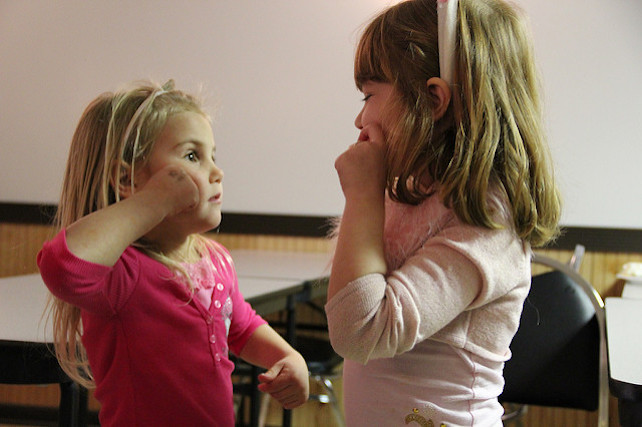The bill will give deaf or hard of hearing the right to an interpreter when they deal with state administrative bodies, if approved.
It will also state the right for every deaf or hard of hearing child to attend classes in sign language in primary and secondary school, whether in a specialised or at an ordinary school.
Parents of such children will have the right to free sign languages classes (up to 100 hours), provided they are held at a certified school (either by Luxembourg or another country of the EU).
Deaf or hard of hearing people in Luxembourg
In 1880, a specialised school was opened in Luxembourg City to educate deaf and hard of hearing children. The law of 1923 introduced obligatory schooling for blind, deaf and hard of hearing children. In 1968, a speech and language therapy centre was opened.
Over the past 100 years, deaf or hard of hearing people were educated only in German oral language, as German is the main language of primary education. Furthermore, the German language is orally close to its written form and close to Luxembourgish.
Since 1993, at the speech therapy centre, German accompanied by sign language was taught to students, which is a visualisation system of the oral language. Since 2002, students are being taught in German and in German sign language. Some students continue their university education in neighbouring German regions.
Sign language
The bill states that sign language is different from the language (LUG) currently being taught in Luxembourg schools. Sign languages evolved naturally and have not been “invented” by any one person.
Every sign in sign language has 5 characteristics which are used at the same time:
- The configuration or form of the hand
- The orientation of the hand
- The place where the sign is done
- The movement of the hand
- The expression of the face
The different signs are positioned so that they become sentences. Sign language has its own grammar, expressions, and vocabulary which are different to the oral language. Sign languages are independent languages and don’t belong to the same linguistic families as oral languages. This means that the German sign language cannot be compared to the German oral language.
The German sign language was chosen because the current “Deutsche Gebärdensprache” (DSG) is used by the majority of the community, and follows the recommendations by Daaflux and experts and NGOs in the field.
New personnel needed
Currently there are only two professional interpreters of sign language in Luxembourg. This means that more personnel needs to be trained. One training course lasts at least 430 hours. The bill foresees therefore that the right for deaf or hard of hearing children to attend an ordinary school enter into force a year later than the rest of the bill, to be able to train enough staff.
Next steps
The bill now goes to the relevant parliamentary committee where it will be debated and, if necessary, amended.
